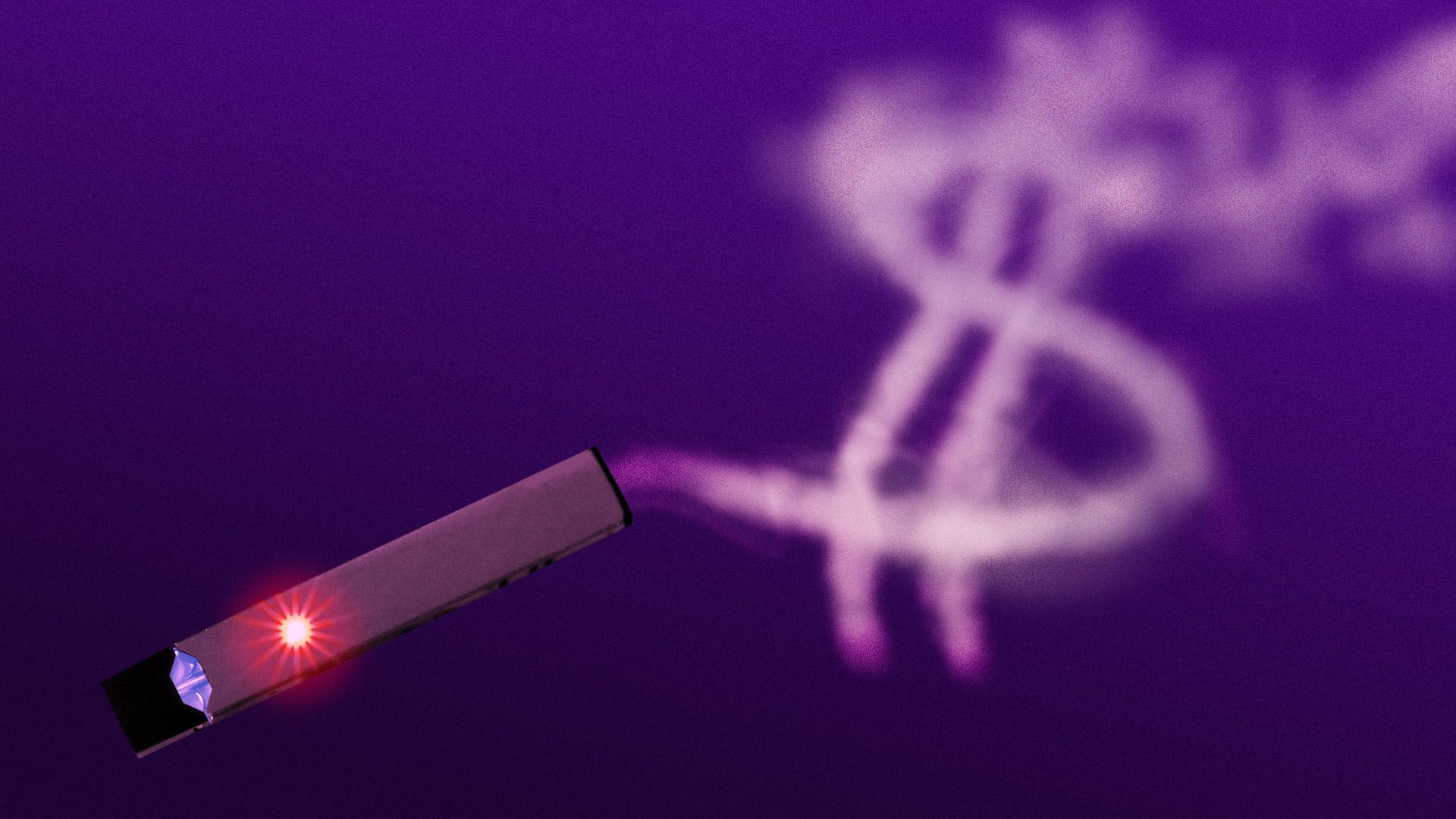Marlboro maker's bad bet on Juul
Add Axios as your preferred source to
see more of our stories on Google.

Illustration: Sarah Grillo/Axios
In 2019 we wrote that Altria's $12.8 billion investment for a 35% stake in vaping products maker Juul was "at risk of becoming one of the worst corporate investments of all time."
June 2022 update: It is the worst corporate investment of all time.
Driving the news: The Food and Drug Administration on Wednesday issued a marketing denial order that bans sales of Juul products in the U.S., according to the WSJ. The FDA has not yet commented.
What to know: This is about Juul more than it is about vaping, as the FDA has allowed some Juul rivals to keep tobacco-flavored products on the market (fruit and mint-flavored vapes were banned in 2020).
- Most of Juul's revenue comes from the U.S., even though its products are available in five other countries. Altria, which is best known for making Marlboro cigarettes, already had written down the value of its Juul investment to just $1.7 billion as of year-end 2021 (matching the year-earlier mark).
- Former FDA commissioner Scott Gottlieb, who led the original charge against Juul, told Axios on Tuesday: "They've authorized three vaping products, so if they indeed deny Juul, it will likely be based, at least in part, on the legacy of abuse of that product. Juul will sue and argue that such a rationale is outside the scope of the application but I believe it's fully relevant. That product can't shake how it was abused in the market by children and how Juul positioned it for such abuse."
Elsewhere: Altria also continues to battle an FTC antitrust complaint related to its Juul investment, winning the first round back in February (FTC is appealing in full). The company and/or Juul also are defendants in more than 50 class-action lawsuits and more than 3,000 other vaping-related lawsuits, per securities filings.
Deal details: Altria, per terms of its Juul investment, isn't allowed to develop or market alternate vaping products until at least the end of 2024. The only caveat would be were Juul to be banned from U.S. sales, but that of course would wipe out almost all of Juul's remaining value.
The bottom line: Altria isn't a victim of bad luck here, even if it had ample reason to believe the FDA would let it keep selling tobacco and menthol-flavored vapes.
- Juul already was hairier than a Yeti when Altria invested, but it nonetheless seemed to fetch a risk premium rather than a risk discount. Now, as the smoke begins to literally clear, Altria has very little more than lawsuits and regret to show for that decision.
